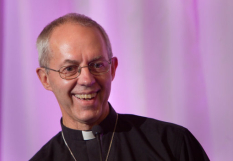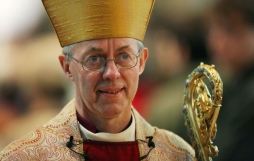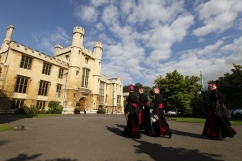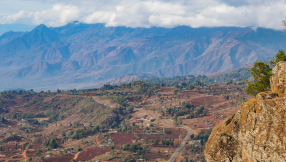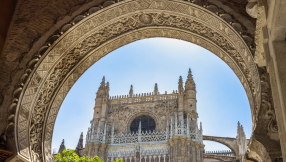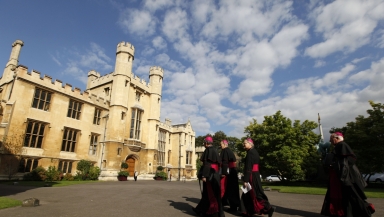
The Archbishop of Canterbury is opening up Lambeth Palace to young adults who wish to spend a year living, studying and praying alongside him, his staff and the existing ecumenical Chemin Neuf community.
The newly-formed Community of St Anselm will be formally launched with the first one-year monks and nuns in September next year. Ruth Gledhill sat down with Chaplain to the Archbishop, Jo Wells, to find out more:
How will these young people contribute something positive to society through St Anselm?
The focus of the year is not about contributing in any visible way 'on the street'. Members will offer time each week in a setting of their choice outside of Lambeth where they can be of service, for instance at a foodbank or other community project. But the core purpose is all about putting one's own life on the line for God – giving body mind and soul in being with God, getting to know God and responding to God. We do not predetermine what that will mean or where it will lead, except for the expectation of personal transformation which is the starting point for wider transformation in society. Whether with kids if a member ends up in teaching or with the banking industry if a member works in the city.
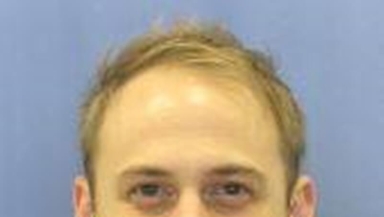
In all walks of life across society we see a clear undermining of trust. I'd like to think that for those who have dug deeply and drunk deeply at this well, that the fruit might be a growing in 'virtue' - so that the fact of their association with CSA becomes a symbol of character, a badge of integrity, that might mark all their future dealings, not just in the religious sphere but well beyond.
Can prayer really make a difference? Isn't locking young people away as 'monks' against the fashionable trend to secularism?
Yes, prayer does make a difference, indeed I'd say it makes the difference. It sums up precisely how people of faith may be distinguished from others: they seek to depend on God, they acknowledge regularly that God is the only One who makes the ultimate difference. Prayer recognises God in the middle of the picture and ourselves as ancillary at the edge. At the same time it recognises the responsibility God places upon us to work for peace and justice. So we commit to working for peace and justice, but begin that work on our knees.
Members will not be 'locked away' being monks and nuns (because they will be neither locked away, nor committing to anything permanent): rather, they voluntarily commit to a limited period of discipline and prayer and sacrifice in the expectation that this is a boot-camp, a place of deep formation and preparation, for something else. What lies beyond may be a surprise, but we can expect it will involve life in all its freedom and fullness, serving God in the world.
How will this have an impact; is it better than a gap year on a beach in Goa?
For the individual I expect this to achieve deep joy and freedom from fear; greater self-awareness and divine-awareness. An ability to sustain honest relationships across situations of deep difference. In my own life, whenever I've freely made sacrifices, I've been generously rewarded. Whenever I've prayed for others, it has also proved a gift to myself. God is no one's debtor.
This is better than a gap year on a beach in Goa because the tan will be more than skin-deep and it will last for a lifetime. And it won't just transform you, it just might set off a whole chain of transformation, in the communities and institutions and industries where God calls you to belong in the future.










